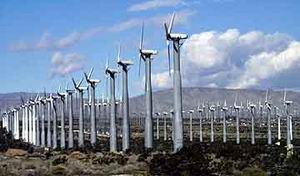On Saturday evening, the science director of the David Suzuki Foundation told CBC Newsworld that world scientists agree? We must act now “to stabilize the Earth’s climate.” We have heard a similar refrain for years. We are told over and over that the rise in temperatures during the 1990s is accelerating the rate of melt of our polar ice caps as never before and worldwide flooding will wash away coastal settlements. Droughts, hurricanes, pestilence and all forms of calamity will be upon us and future generations if we do not reduce our carbon dioxide emissions that, so they say, is causing global warming.
A couple of nights earlier on CBC News, Andrew Weaver of the University of Victoria asserted with respect to recent events, “[This] is nothing – wait ’til 2050. This is scary. I mean the kind of climate change in store in the next 50 to 100 years is equivalent to the climate change that existed between when the dinosaurs roamed the Earth in the Cretaceous and today. That’s 60 million years of climate change happening in a hundred years!”
Besides the fact that the mass extinction that wiped out most of the dinosaurs was actually 66 million years ago, Weaver apparently also does not realize that in those millions of years the climate has been extremely variable, ranging from nearly tropical in polar regions to ice sheets covering much of North America and Europe. This period also saw changes from some of the highest sea levels ever to some of the lowest.
In late December, the media expressed shock as a large piece of ice shelf on the north end of Ellesmere Island in the Canadian Arctic broke off and created seismic waves. It was reported that 90% of the northern ice shelves had now been lost. Not mentioned was the fact that this is an ongoing, albeit intermittent event. Since the ice shelves were first mapped in 1906, they have been gradually disappearing. In fact, research papers on this ice shelf, published in 1986 and 2001 by Dr. Martin Jeffries of the University of Alaska, show that by 1962 roughly 60% of the ice shelf had already disappeared. Since then, an additional 30% has broken away with a larger loss than the most recent one occurring about 30 years ago. In other words, 60% of the ice shelf was lost in the first 56 years of this period (over 1% per year) versus 30% in the last 44 years (or 0.67% per year). Is that acceleration? Before today’s global warming hype, Jeffries reported that “the coincidence of tidal and seismic events in 1962 created a critical condition that caused the ice shelf calving.” He concluded that further losses were to be expected.
In the work I have been involved with on Bylot Island in the eastern Canadian Arctic, we have found a fairly continuous glacier retreat of 40 to 50 metres per year since the late 1940s when air photos were first taken. Clearly, this retreat is nothing new – it is a long-term response to natural variations in climate. The Little Ice Age from the 1400s to the mid-1800s was the coldest period in the past millennium, cold enough to allow skating on the canals and rivers of England and mainland Europe. Before that it was much warmer – 6,000 years ago during the ‘climatic optimum’ the Canadian Arctic was perhaps as much as 3C to 5C warmer than today. Then, the depth of thaw of the upper permafrost was much more than we see today.
Last year, when a conference was held at Tuktoyaktuk on the shores of the Beaufort Sea, news reports blamed global warming for the massive coastal erosion that is endangering the community. However, research has documented that such erosion has been occurring along this part of the Mackenzie Delta at a rate of tens of metres per year for centuries, if not millennia. At one time the community would have been kilometres from the coast. The shores of this region are ice-rich and susceptible to erosion by waves and warm temperatures. What we are witnessing is natural, ongoing change and certainly nothing new.
The success of the human species has been largely due to its ability to adapt to environmental changes. With the evolution of megacities, we now seem to feel that we are powerful enough to change the environment at our whim. Hurricane Katrina’s devastating impact on New Orleans should have been a wake-up call to the fact that we must still be ready to adapt to environmental change, including climate variations. Instead, it has been used by alarmists to promote their impossible goal of “stopping climate change.” In reality, climate is constantly changing and will continue to change no matter what we do.
We need to put our energies and resources into solving real environmental problems – air, water and land pollution, the loss in biodiversity, and urban sprawl, to name just a few. “Stabilizing the Earth’s climate” as suggested by Suzuki’s science director, is sheer fantasy. Its time to chill out on climate change hysteria.
Dr. Fred Michel, an advisor to the Natural Resources Stewardship Project (nrsp.com), is the director of the Institute of Environmental Science and Associate Professor in the Department of Earth Sciences at Carleton University in Ottawa.


